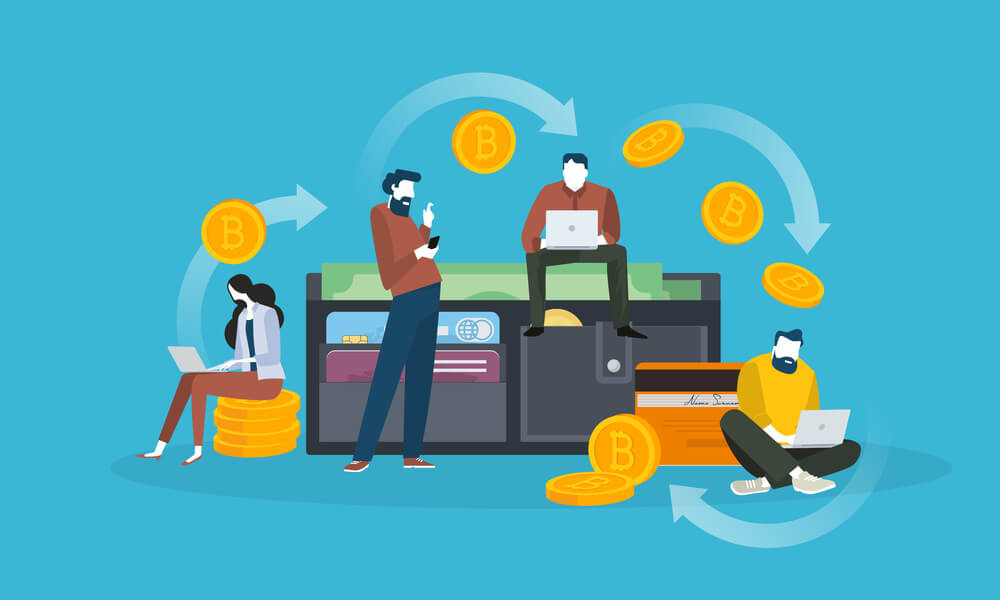Blockchain technology has emerged as a transformative force in today’s rapidly evolving digital landscape, revolutionizing industries and providing secure and decentralized solutions. As blockchain continues to gain prominence, the development of blockchain wallets has become a crucial aspect of this ecosystem. In this article, we will delve into the intricacies of blockchain wallet development, exploring the various factors that influence the cost and the essential blockchain wallet development services.
Introduction
With its decentralized and tamper-resistant nature, blockchain technology has paved the way for a new financial and technological innovation era. At its core, a blockchain wallet is a digital tool that allows users to securely store, manage, and transact cryptocurrencies and digital assets.
Understanding Blockchain Wallets
A blockchain wallet functions as a bridge between users and the blockchain network. It contains cryptographic keys that enable users to access and control their funds on the blockchain. These wallets come in various forms, offering distinct advantages and trade-offs regarding security, accessibility, and convenience.
Factors Influencing Blockchain Wallet Development Cost
The cost of developing a blockchain wallet can vary significantly based on several key factors:
Platform and Technology Choice
The choice of platform (web, mobile, desktop) and underlying technology stack significantly influences development costs. Native app development may require more resources compared to web-based solutions.
Features and Functionality
The complexity and range of features, such as multi-currency support, two-factor authentication, and integration with third-party services, impact development costs.
Security Measures
Implementing robust security measures, including encryption, biometric authentication, and cold storage, adds to the development cost but is crucial for ensuring the wallet’s safety.
User Interface and Experience
A user-friendly and intuitive interface enhances the wallet’s appeal. Design and UX development contribute to development expenses.
Integration with Blockchain Networks
Support for different blockchain networks and consensus algorithms affects development complexity and costs.
Types of Blockchain Wallets
There are several types of blockchain wallets:
Software Wallets
Software wallets are applications or software programs that users can install on their devices. They offer convenience but may be susceptible to cyber threats.
Hardware Wallets
Hardware wallets provide enhanced security by storing cryptographic keys offline. They are ideal for users seeking maximum protection for their digital assets.
Paper Wallets
Paper wallets involve printing out private keys and addresses. They offer a physical backup but can be easily damaged or lost.
Mobile Wallets
Mobile wallets allow users to manage cryptocurrencies on the go. They combine convenience with security features.
Steps in Developing a Blockchain Wallet
Developing a blockchain wallet involves several key steps:
Project Planning and Research
Thorough planning and research lay the foundation for a successful wallet development project.
Design and User Interface Development
Creating an appealing and user-friendly design enhances the wallet’s overall experience.
Backend Development and Blockchain Integration
Integrating blockchain technology into the wallet’s backend is a critical step.
Security Implementation
Strong security measures, such as encryption and authentication, ensure the wallet’s safety.
Testing and Quality Assurance
Thorough testing and quality assurance help identify and rectify any potential issues.
Deployment and Launch
Once thoroughly tested, the wallet is ready for deployment and launch.
Cost Breakdown: Estimating Blockchain Wallet Development Expenses
The cost of developing a blockchain wallet can vary widely, ranging from a few thousand dollars to significant investments, depending on the factors mentioned earlier.
Also Read: A Step-by-Step Guide to Crypto Wallet App Development
Blockchain Wallet Development Services
Several specialized services contribute to successful blockchain wallet development:
Wallet Development and Customization
Expert developers create and customize wallets to meet specific user needs.
Multi-Currency Support
Enabling support for various cryptocurrencies enhances the wallet’s versatility.
Security Audits and Penetration Testing
Thorough security audits and penetration testing ensure the wallet’s resistance to cyber threats.
Blockchain Network Integration
Integrating with different blockchain networks expands the wallet’s usability.
User Experience Enhancement
Continuous improvement of user experience keeps the wallet competitive and user-friendly.
Why Investing in a High-Quality Blockchain Wallet Matters
A high-quality blockchain wallet ensures the safety, accessibility, and convenience of users’ digital assets, fostering trust and adoption.
Conclusion
In conclusion, developing a blockchain wallet involves a combination of technology, security, and user-centric design. The cost varies based on features, security, and technology choices. Investing in a well-designed and secure blockchain wallet is crucial for anyone seeking to engage in cryptocurrencies and digital assets.
